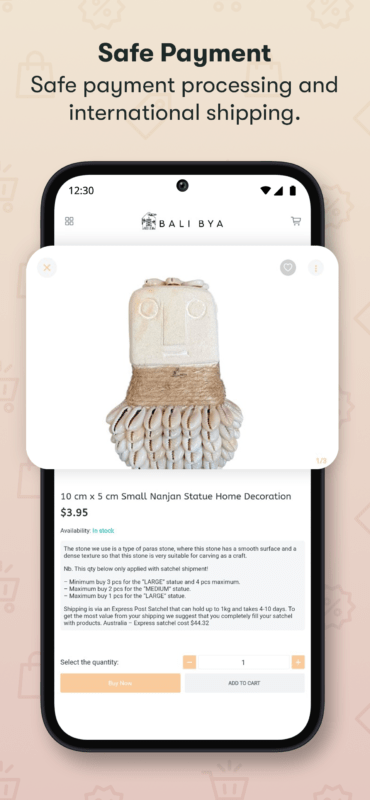Everything You Need to Know About Bali Belly: Prevention and Treatment

How to Prevent and Treat Bali Belly
Bali is a tropical paradise loved for its vibrant culture, stunning beaches, and delicious food. However, travellers often hear about “Bali Belly,” a common digestive issue that can put a damper on your holiday. If you’re planning a trip to Bali, it’s essential to understand what Bali Belly is, how to prevent it, and what to do if it strikes.
What is Bali Belly?
Bali Belly refers to traveler’s diarrhea, a condition caused by consuming contaminated food or water. Symptoms typically include stomach cramps, nausea, vomiting, diarrhea, and sometimes fever. While it’s generally not life-threatening, it can be unpleasant and disruptive.
How to Prevent Bali Belly
Prevention is better than cure when it comes to Bali Belly. Here are some practical steps to stay healthy while enjoying Bali’s culinary delights:
1. Be Cautious with Food and Drinks
- Avoid Tap Water: Only drink bottled, boiled, or filtered water. Use bottled water for brushing your teeth and avoid ice cubes unless you’re sure they’re made from purified water.
- Choose Restaurants Wisely: Opt for eateries with high hygiene standards. Look for busy establishments with a good reputation.
- Eat Cooked Food: Stick to freshly cooked meals. Avoid raw or undercooked seafood, meat, and eggs.
- Wash Fruits and Vegetables: Rinse fresh produce with clean water or peel them yourself.
2. Practice Good Hygiene
- Wash Your Hands Frequently: Use soap and water or carry hand sanitiser to keep your hands clean, especially before eating.
- Avoid Sharing Utensils: Stick to your own cutlery to minimise the risk of contamination.
3. Build Up Immunity Before Travelling
Some travellers take probiotics a few weeks before their trip to strengthen their gut health. Consult a doctor for advice on supplements.
What to Do If You Get Bali Belly
If Bali Belly strikes, taking immediate action can help you recover faster and minimise discomfort.
1. Stay Hydrated
Dehydration is the biggest risk with diarrhea. Drink plenty of clean water and consider oral rehydration salts to restore lost electrolytes. Coconut water is another excellent natural hydrator.
2. Eat Light and Simple Foods
Stick to the BRAT diet (Bananas, Rice, Applesauce, Toast) until your stomach feels better. Avoid spicy, fatty, or dairy-heavy foods during recovery.
3. Use Over-the-Counter Medication
- Anti-Diarrheal Medicines: Products like loperamide (Imodium) can help slow down diarrhea.
- Probiotics: Taking probiotics may help restore healthy gut bacteria.
- Pain Relief: Paracetamol can ease cramps and fever if needed.
4. Seek Medical Help
If symptoms persist for more than 48 hours, or if you experience severe dehydration, high fever, or blood in your stool, seek medical attention.
Recommended Medical Services in Bali:
5. Try IV Therapy for Quick Relief
IV therapy is a popular option in Bali for rehydration and recovery. These services provide fluids, vitamins, and electrolytes directly into your bloodstream for fast results.
Recommended IV Services in Bali:
Tips for a Safe Recovery
- Rest as much as possible to allow your body to heal.
- Avoid alcohol, caffeine, and heavy meals until you’ve fully recovered.
- Gradually reintroduce regular foods as your symptoms improve.
Final Thoughts
Bali Belly is an unfortunate but manageable part of travelling to a tropical destination. By following preventive measures and acting quickly if symptoms arise, you can minimise its impact on your holiday. If you need professional help, Bali offers excellent medical and IV services to get you back on your feet.
Enjoy your Bali adventure, and don’t let Bali Belly keep you from experiencing the magic of the island!
Want to do some shopping while in Bali? Book a shopping tour here










